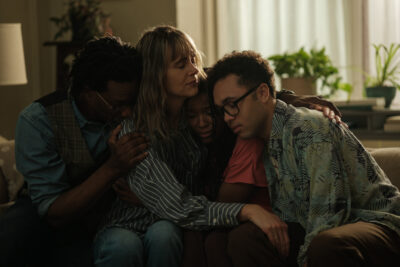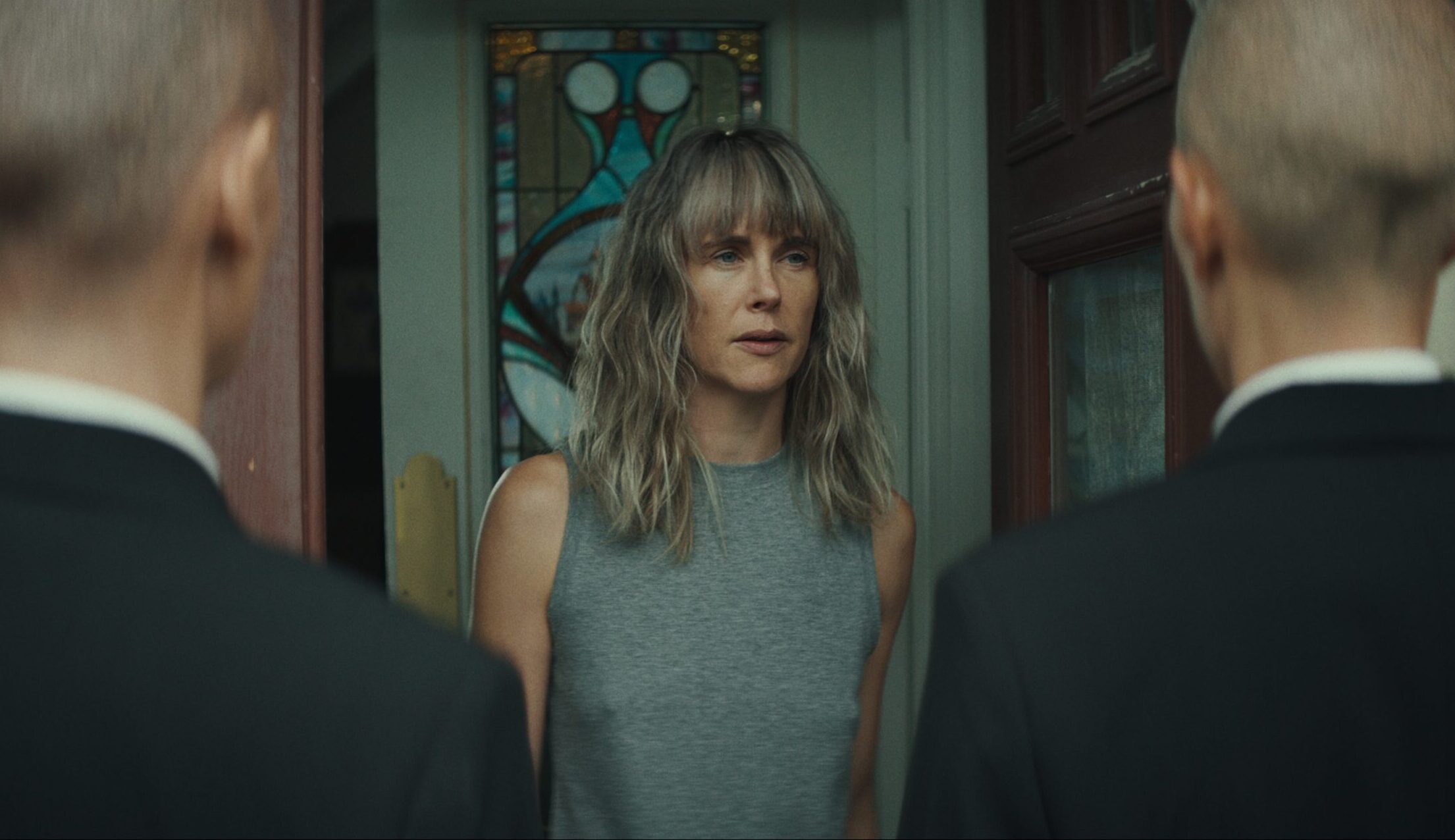Carolina Bartczak is no stranger to playing women coping in extreme situations. She’s perhaps best known for her role as Magda, Magneto’s doomed wife in X-Men: Apocalypse. In Netflix’s Painkiller, her character desperately tried to keep the family business afloat while her husband succumbed to fentanyl addiction. And in her latest project, Season 3 of the time-travelling anthology series Plan B, she plays a woman living through every mother’s worst nightmare.
When her teenage daughter Lucy dies by suicide, Abigail’s world is shattered. Haunted by her grief and regrets, the morning television host and women’s rights activist turns to the Plan B agency as a last resort—a chance to go back in time to save her daughter’s life.
This season is gripping and thought-provoking, delving into intense themes of mental health and domestic violence—even Bartczak warns that it can be a tough watch. But as with the previous seasons, it’s a fascinating look at a question we have all agonized over at some point—what if we could go back in time and change just one thing?
We caught up with Bartczak ahead of the Season 3 premiere to hear more about what drew her to this season’s intense storyline, how she pulled off a pivotal 7-minute scene in the first episode, and the shifts she’s seen for women’s roles in film and TV.
What first drew you to Plan B and the opportunity to take on the lead role this season?
What really struck me was that the writer, he was asking more questions than making any judgments. Questions like, what’s it like for a young person to grow up right now? What’s it like for Gen Z to be dealing with all these mental health issues and being flooded with social media? And what’s it like to be a parent in this day and age where we’re working so hard, but we also are torn between our family responsibilities and our work responsibilities?
And I love that each character was so beautiful and flawed. There was no villain. When terrible things happen, you always want to point a finger at someone and say that person should have done this differently. There was none of that. You couldn’t really fault anyone for the decisions that they made. It was taking a really difficult subject matter and asking really nuanced questions about it.
Abigail is balancing her high-stress career, activism, children, and relationships while a huge tragedy rocks her world. How did you approach playing her character?
Right away, when I started reading the scripts, I pictured her like a freight train, or like one of those Japanese high-speed trains, where she just barrels forward and disregards anything to her left or to her right. In a way, that’s why she was able to be so successful. But also, she didn’t see the damage that she would leave behind. So I wanted her to always be doing things out of the goodness of her heart, and I think that she is a kind and thoughtful person, but she sometimes doesn’t see how her actions affect other people who are much more sensitive.
Another part of Abigail’s storyline that stuck out to us was her passion for women’s rights, and how her activism was weaponized against her in the worst moment of her life. Can you speak to this element of the season?
She just wants to build a shelter for women and have women seen in society. Why does that cause such a backlash? Why are there so many people angry with that—men and women? When she suffers this tragedy, people point fingers at her right away and say it’s her fault. I think the people pointing fingers and blaming her are afraid of something—of women having equal opportunity or maybe they’re just afraid of it happening to their kid. When we’re afraid of something, we try and find a reason as to why it happened, in order to feel more in control. We blame people because whatever happened can be so devastating. So for me, what’s interesting is—why are those people attacking her?
In the past, you’ve played several women who take on all kinds of challenges while navigating their personal lives and motherhood. Throughout your career, have you noticed any shifts in the types of roles available for women in film and TV?
Oh, for sure. Even in the short span of my career, I’ve seen a giant shift. We are starting to talk about women’s lives in a much more profound way. We’re no longer just the side piece to the main character. Now women are allowed to have these huge lives and these feelings, and we’re allowed to talk about how difficult motherhood is and how lonely it can be, and all the challenges that come with it, and also our dreams and our ambitions.
I also loved that about [Abigail]—how hard she struggles to be a good mom, but also have her career. It’s absolutely brutal. I feel sometimes like I want a magician to saw me in half. So one part of me can deal with my family, the other part of me can deal with my career. It’s very overwhelming.

In this season, Arianna Shannon made her acting debut as your character’s daughter. How did you approach working with her to build the complex mother-daughter dynamic that Abigail and Lucy have?
I think I got the job because of Arianna. She had already been cast, so when I came in for my audition, they asked me if I would read a scene with Arianna. I remember the director saying, Arianna is gonna have her emotional scene, and you just listen. And as I’m listening, she’s telling me the traumatic thing that she’s feeling, and I just got very visibly upset. And the director is like, cut—you’re not upset. And then we did it again, and I started getting upset again. I think in that moment, we just immediately were drawn to each other. She was so good at her job. She was so good at bringing her character to set every day, you would never know that it was her first time.
Is there a moment in this season that you’re most proud of?
It’s in the first episode. We did a seven-minute-long take from when Abigail finds Lucy and the melee that happens. We rehearsed it for almost two hours because we needed it all to happen in one moment. It had so many different parts. We needed the police to arrive at the exact right moment. We needed the ambulance to arrive at the exact right moment. Also, there’s a camera person and a sound person…and how to not run into each other and make it happen all organically. It was absolutely thrilling. We were all holding our breaths each time to make sure that it would happen.
That scene was a showstopper for sure! Since the series is an anthology, what do you think fans of the previous seasons will enjoy about this season of Plan B?
I think what they’ll like is that it’s an equally exciting and nuanced story, and then we do have a visitor from one of the other seasons come into this season. That’s a little easter egg that people can look out for.
Season 3 of Plan B is streaming now on CBC Gem.



 Follow Us On Instagram
Follow Us On Instagram
